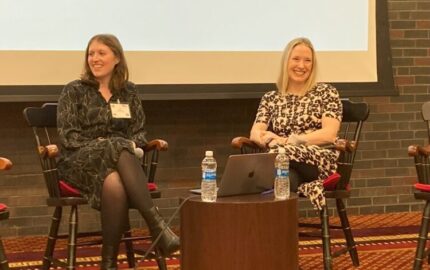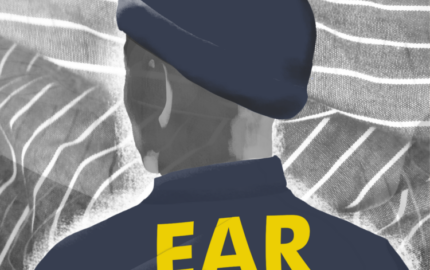 The film was a side effort from producer and filmmaker Chad A. Stevens, who is also working on a larger project, The Coal War, which narrates the fight by activist Lorelei Scarbro to save Coal River Mountain in West Virginia from mountaintop removal. Stevens, a professor at the University of North Carolina at Chapel Hill and a former editor at MediaStorm (which helped produce Leveling Appalachia), has spent nearly four years working on The Coal War so far. Though that film will not be finished until the fate of the mountain is decided, Stevens’ projects provide an interesting take on one filmmaker approaching the same issue in the same medium in different ways.
The film was a side effort from producer and filmmaker Chad A. Stevens, who is also working on a larger project, The Coal War, which narrates the fight by activist Lorelei Scarbro to save Coal River Mountain in West Virginia from mountaintop removal. Stevens, a professor at the University of North Carolina at Chapel Hill and a former editor at MediaStorm (which helped produce Leveling Appalachia), has spent nearly four years working on The Coal War so far. Though that film will not be finished until the fate of the mountain is decided, Stevens’ projects provide an interesting take on one filmmaker approaching the same issue in the same medium in different ways.Leveling Appalachia covers a lot of ground and recalls TV news magazines in which talking heads spar over an issue, but Stevens says he has other plans for The Coal War:
Leveling Appalachia is very different from The Coal War, although it addresses some of the same issues. Roger [Cohn], Yale e360's editor, wanted to have a definite focus on the environmental issues. So you have things like the debate between the Department of Environmental Protection and Dennis Lemly, the researcher, about selenium and whether the fishery is on the brink of a catastrophic toxic event—along with water quality issues in general. There’s also more in-depth attention to the process of mountaintop removal. I think The Coal War will address those things, too, but the overarching theme of the film really will be the mountain itself, and wind versus coal. It will be a story.
By definition a story has that narrative arc where the conflict is established, there’s struggle and tension, there’s drama rising to a climax, and there’s resolution. Generally there’s a character that changes over time. They were this, and they are now that. They’ve evolved, and we get to witness and be with them on that journey. It takes a lot of time to do a story like that, because you’re there in the process as the change is happening.
Stevens interned at several news organizations, including National Geographic. After finishing his undergraduate work, he went to Spain and then to Africa, where he worked doing multimedia for an NGO in Uganda before returning to the States. He began teaching at Western Kentucky University, his undergraduate alma mater, where he started a photo workshop—“a very shoestring low-budget scenario—kind of the anti-big photo workshop.”
After being taken up to the edge of a mountaintop removal project in eastern Kentucky in March 2003, he recalls feeling he had to do something to address the problem. He ended up going to graduate school at Ohio University, planning to do his master’s thesis on mountaintop removal, though his project ended up with a different emphasis. He came to believe that mountaintop removal is wrong, an opinion that comes across when watching Leveling Appalachia and the trailers for The Coal War. Asked if he feels any conflict reporting on an issue about which he has his own strong opinion, Stevens addressed the tension between the two:
I’m a journalist with a point of view. I’m still going to present both sides, though of course, it’s not even as simple as “both sides.” If you create a film and are just preaching at the audience, they’re not going to be open to it or just accept what you say. But if you present both sides in a credible and honest way, I think people are more apt to make up their own minds.
There are things we can look at, even if we’re journalists, and just say, “That’s wrong.” I would rather be transparent. I think transparency is the new objectivity, if you will. I’d rather be transparent about where I’m coming from, and present it, still present both sides—even multiple sides—and let the audience decide…
The fate of the mountain is still in limbo, and so Stevens continues to work on his story, teaching at the University of North Carolina while he travels back and forth to West Virginia to film. For his 35th birthday, he recently made an animated short to ask friends and family for help with the film, and launched a Kickstarter fund drive earlier this month. He's also doing more traditional fundraising through grant applications and events.
Asked who he’s hoping to reach, he says,
My audience is not environmental activists—it’s really my mom, who is 55 years old and lives in Kentucky but has no real connection to the mountains, She keeps the heat on 74 degrees in the wintertime. She consumes electricity like there’s no consequence. If my mom can see this and see the consequences of her own actions and change that pattern just a little bit, and you multiply that change over a massive audience, that can make a difference.



